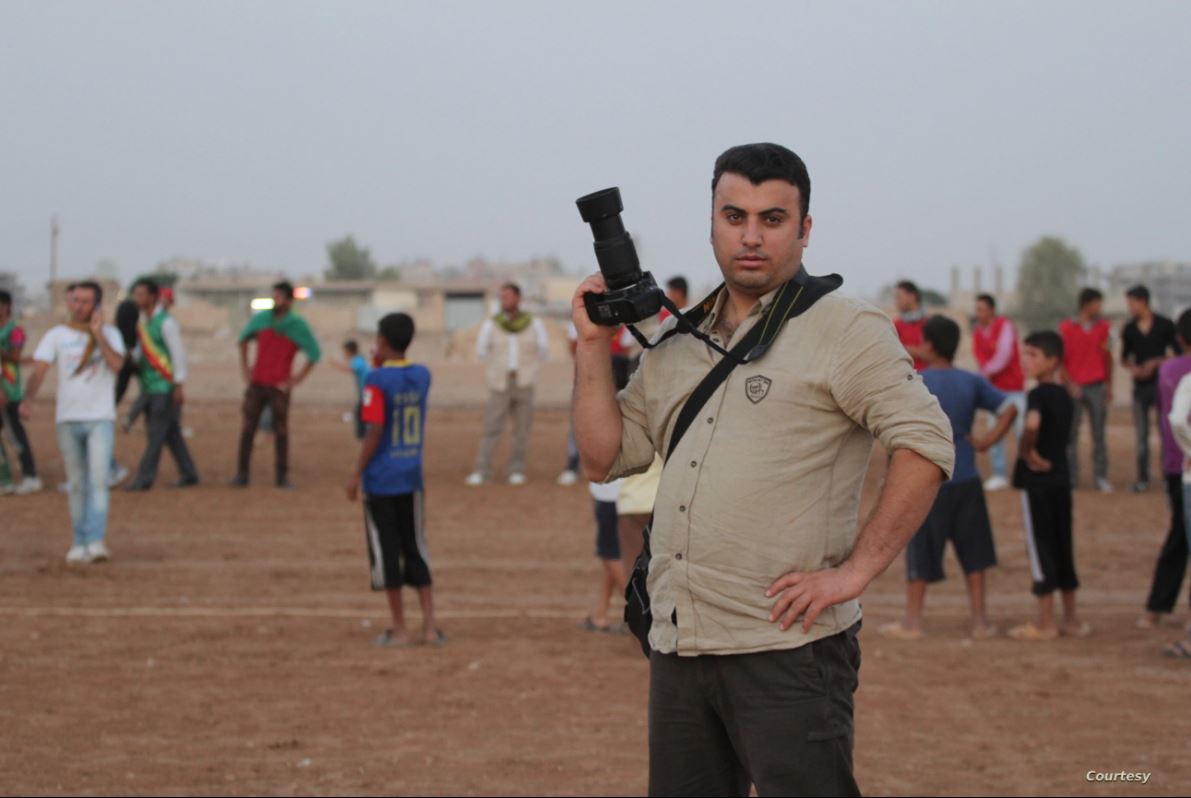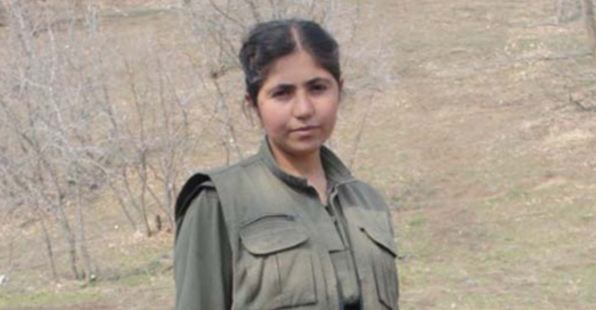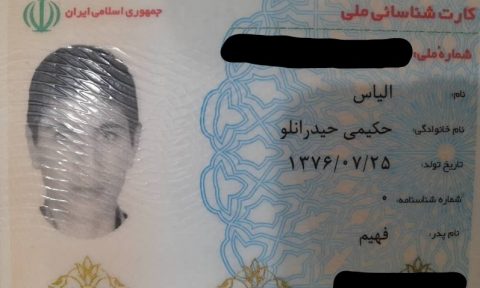IRBIL, IRAQ – An Iraqi Kurdistan journalist sentenced this week to six years in prison on charges of spying says he was tortured mentally and physically while under investigation.
Freelancer Sherwan Sherwani was one of five journalists and activists convicted by an Irbil city court of “spying and organizing armed groups” against the government.
The two-day trial was criticized by lawyers and rights organizations who said the case was politically motivated and a violation of freedom of expression. Sherwani’s lawyer said journalistic materials were presented as evidence of spying, and others pointed out that the region’s prime minister had described the journalists as spies in a press conference a week before the trial.
Sherwani and his co-accused were arrested in October after a wave of demonstrations in the region last year against corruption and economic pressures, including salary disruptions caused by a yearslong dispute over oil and budgets between the Kurdish Regional Government, which rules the autonomous region, and Baghdad.
Sherwani had been covering the protests and was active on social media, sharing critical coverage. He was one of several journalists to be detained, harassed or threatened while covering the protests, media rights groups said.
Kurdish law
In Sherwani’s case, the journalists and activists were all charged under Kurdish law relating to crimes that damage “the security, stability and the sovereignty of Iraqi Kurdistan Regional institutions.”
Evidence presented in court included messages from an online group chat, photos from cellphones, voice recordings and two witness testimonies read out in court. In the group chat, information was exchanged, including about an illegal oil field in Duhok province, and photos of a political party headquarters, an airport and security personnel.
“If the court sentences them to six years for a group chat that is for exchanging information, they should sentence me for 200 years, because every day I get that kind of information,” said Ali Hama Salih, an Iraqi Kurdistan MP from Goran, one of the region’s main political parties, who attended the trials.
Bashdar Hassan, a lawyer representing the defendants, told VOA the evidence was journalistic materials.
“Some of [the photos] were already published in 2015 in Bashur,” Hassan said, referring to a magazine where Sherwani was editor in chief.
Voice recordings were also presented, including one in which a voice said to be Sherwani’s is heard saying, “This government does not go with civic activities, we should ‘punch’ them.”
Sherwani denied in court that the recorded voice was his, and the lawyers asked that the recordings be analyzed to check their authenticity. However, the judge issued the verdict before that could happen, Hassan told VOA.
Hassan said the court also denied a request that the two witnesses be brought to court.
Iraqi Kurdistan has laws meant to protect journalists from being jailed for their work, but they are rarely applied, said Rahman Gharib, the coordinator of the Metro Center for Journalist Rights and Advocacy.
“The security forces recorded [Sherwani’s and his friends’] occupations as ‘worker’ instead of ‘journalist,’ in order to prevent using the journalism law in their case,” Hassan said.
VOA tried to contact the judge overseeing the case, but he declined to comment.
Rights violations
Sherwani said he was mistreated while in custody. “While I was under investigation, I was not allowed to see my lawyers, I got tortured physically and mentally, they threatened me to rape my wife,” Sherwani told the court.
Kamaran Osman, from the international organization Christian Peacemakers’ Team (CPT), told VOA that Sherwani and the others were also denied proper access to lawyers while in pretrial detention. CPT, which supports freedoms and peaceful activities in conflict areas, was monitoring the trial.
“During the four to six months while they were in prison, their lawyers were allowed to see them only for 5 minutes [in total],” Osman said. “The whole trial was against human rights. Considering the prime minister’s talks last week, we believe this is a political decision.”
Osman was referring to comments that Masrour Barzani, prime minister of the Kurdish region, made during a press conference on February 10.
“I have a lot of respect for journalists and their careers as I support freedom of speech in all of its kinds,” Barzani said. “The ones who are arrested are neither journalist or activist. Some of the [arrested] individuals were agents of foreign spy agencies. Some of them were armed, plotting to explode buildings, attack foreign citizens, kidnap people and destabilize the situation.”
Former judge Shex Latif told VOA the judiciary is independent and that, under law, the prime minister should not be involved in their decisions.
“That was a message to the judges. And because the judges are biased to the political parties, they cannot ignore the message,” said Latif, who resigned from his role as judge in 2018 over what he said was the “political parties’ hegemony on the courts.”
“I have never heard of a terror case to be decided in court in two days. It was ridiculous,” he added.
The Ministry of Justice did not answer VOA’s phoned request for comment.
VOA tried to seek comment from Jutyar Adil, the spokesperson of KRG, and Dindar Zebari, its international advocacy coordinator, but neither responded to a request for an interview.
Zebari’s office shared a statement issued in response to media rights groups who criticized the trial.
The statement said Sherwani and the others were “found guilty of gathering classified information and passing it covertly to foreign actors in exchange for substantial sums of money. This information directly put at risk the lives of senior Kurdish and foreign officials in Kurdistan. They were also found guilty of possession of illegal weapons.”
Backlash
The New York-based Committee to Protect Journalists described the verdict as “unfair and disproportionate” and added in a statement that it “proves that the Iraqi Kurdistan regional government has finally dropped the pretense of caring about press freedom.”
Political parties, including the Patriotic Union of Kurdistan (PUK) and Goran, also said they viewed the verdict as an attack on freedom of expression.
Twelve MPs from Goran published a statement on social media saying that the sentence “goes against the international human rights treaties and the freedom of expression.”
Karwan Gaznay, from the PUK, the second-largest party in parliament, asked on Facebook, “What is sentencing to 6 years without evidence and documents? Who has damaged the reputation of Kurdistan, you or journalists and activists?”
For now, Sherwani and his co-accused remain in custody. Their case will go to the cassation court, or court of appeal, for a final decisio
https://www.voanews.com/press-freedom/iraqi-kurdistan-court-convicts-journalists-spying.










